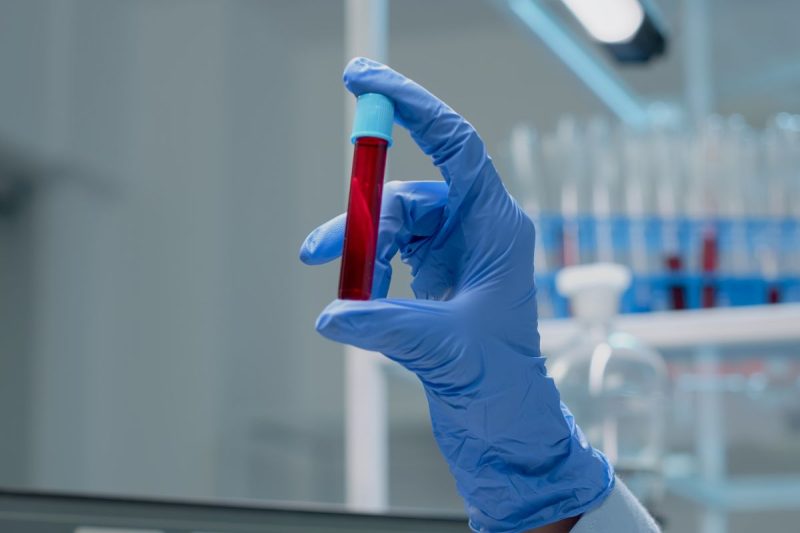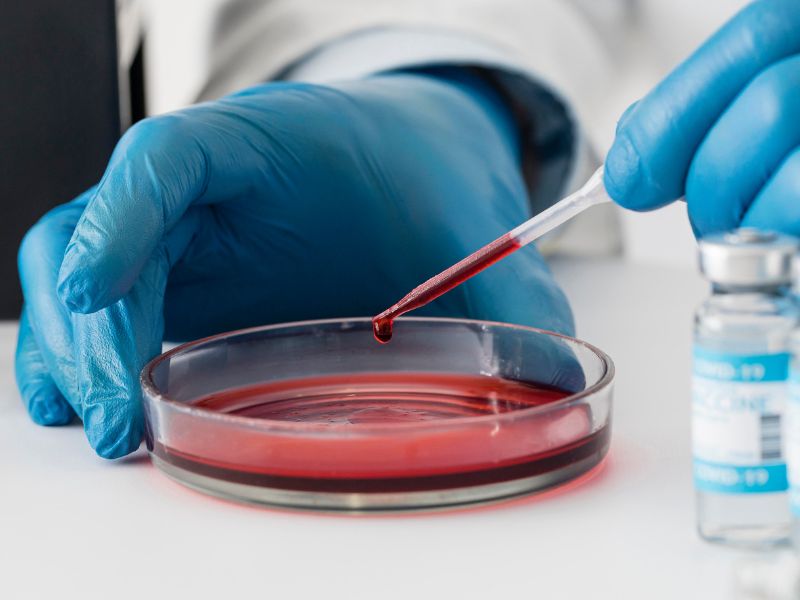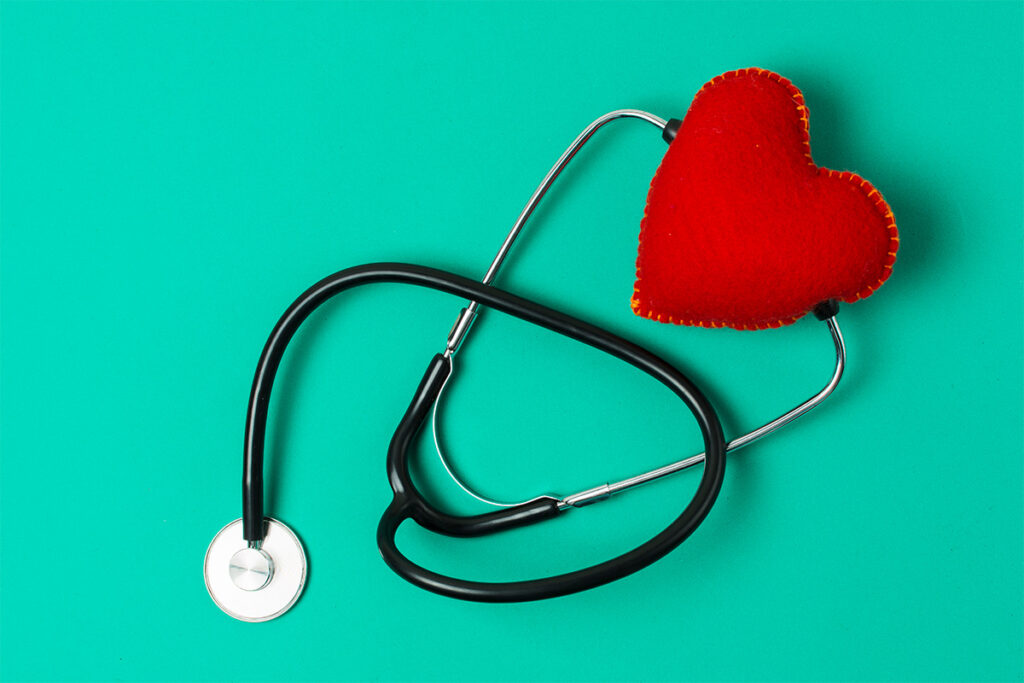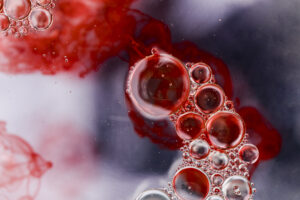Know Your Blood: The elixir of life

-
Know Your Blood: Of all things that human body contains Blood has the most mystical aura. Even the ancients with very rudimentary understanding of science linked it to a person’s innate characteristics, long before the concept of gene was known. Blood represented love, hate, lineage, bond and all things innate and beyond common logic. And they were not wrong. Blood represents so much about and individual that even in modern times blood test continues to be the choice test of medical professionals to determine the state of health of an individual. But what exactly is blood and its functions in your body?

Know Your Blood What is blood?
Know Your Blood: Blood is a specialised fluid in the bodies of vertebrate organism, like humans and most mammals, which performs the function of supply chain system of the body. In evolutionary terms as life evolved from single celled organisms to more complex life forms with specialised organs performing specific jobs, there was need for a medium via which these organs could be supplied with necessary nutrients as well as coordinate their activity. And since life on earth is mostly water based it was no surprise that this supply chain function came in form of a specialised liquid i.e. Blood. It can be said with some justification that blood is start of what we call as sentient life.
What are functions of blood in my body?
Know Your Blood: As we discussed blood is the supply chain manager of the body carrying oxygen and nutrients to various parts of the body. And this something that most people know. However, blood does a whole lot more than that. Blood is the main line of defence against pathogens. Apart from nutrients blood also supplies hormones, signals our emotion (notice the red face when we blush or get angry?), helps regulate body temperature and also carries away waste. To summarise it has many functions and is a complex fluid. Scientist estimate that one drop of blood contains around four thousand different molecules. And thus, it is often the preferred way of testing your health.
What is blood made of?
Physically speaking blood has 4 components. Red blood cells (RBC), White Blood Cells (WBC), Platelets and Plasma.
- Red Blood Cells are the most common ingredient of blood. They are 44% of the blood by volume and are super abundant in the blood. One tablespoon of blood is estimated to have 25 billion red blood cells. No wonder the blood is red in colour!! Red blood cells are composed almost entirely of Haemoglobin, a protein to which oxygen attaches readily. Red Blood Cells are responsible for carrying oxygen across the body. Red blood cells have a lifespan of around 4 months and in that time, they will travel an astounding 150,000 times across your body covering a distance of 100 miles!!
- White Blood Cells (WBC) are the guard cells of the body responsible for tracking and fighting down pathogens. They are the frontline defence of the body. But they are far fewer in number in blood than red blood cell. They comprise less than 1% of the blood. There are 3 types of White blood cells (granulocytes, monocytes, and lymphocytes) with varied functions. The life span of WBC’s is wide ranging and can be in hours to years. An interesting fact about WBC’s is that most of blood cancer cases are related WBC’s
- Platelets comprise less than 1% of the blood by volume and are the main cells responsible for clotting and bridging any opening in skin. Platelets also play a key role in immune function and tissue regeneration. Platelets live for only around a week and need constant replenishing.
- Plasma is the most abundant part of the blood comprising nearly half the blood volume. Plasma is 90% water with salts and other chemicals suspended in it. Plasma is the essential medium in which other blood cells travel. It also is responsible to provide clotting in case of an injury as well as provide the medium for waste generated by the organs to travel back for expulsion. A less known fact about plasma is that it is very big business. United States, one of the few countries where commercial blood donation is allowed, earns more from export of plasma than it does exporting airplanes!!
What are the blood types?
While the essential nature of blood cells is the same for all human beings, there are minor differences on surface of cells. These differences are about the arrangement of various proteins, called antigen, on the surface of blood cells. Due to these differences when the blood cells of different types mix there is clotting. And that is the reason why for blood transfusion it is important to match blood types. There are 4 blood types namely A, B, AB and O. In common perception blood type O is often and wrongly called universal donor. Blood type O is universal donor for Red Blood Cells. Blood type O cannot for instance donate plasma to other blood types. The universal donor for plasma and platelets is blood type AB. Scientists are not very sure as to why there are different blood types except a hypothesis that developing different blood types in a group makes the group, as a whole, more resistant to diseases. This is borne by statistics. For example, blood type O are more resistant to malaria and heart disease but are more susceptible to cholera. Blood types A are more susceptible to stomach cancer while blood type AB is more susceptible to memory issues.
If blood is so imp, how does donating it not make me weak?
As with any important organ our body has inbuilt redundancy. Humans can donate up to 14% of blood in their body without any major negative side effects. While it is common to feel some weakness after blood donation, the body replaces the lost blood rather quickly. Plasma is replaced in as little as 24 hours while red blood cells take four to six weeks. That’s why it is recommended that a person wait for couple of months to donate blood again.
In spite of knowing so much about blood all the attempts to generate artificial blood have failed so far. Scientists believe that we have much better chance of developing artificial organs (heart, kidney, lungs etc) than artificial blood. This is because while we know the components of blood, the intricate chemistry that happens within cells is difficult to replicate. Advances in quantum computing and nano technology offer us better chance of manufacturing this vital substance and save so many lives. Till then donation is the only way out.












